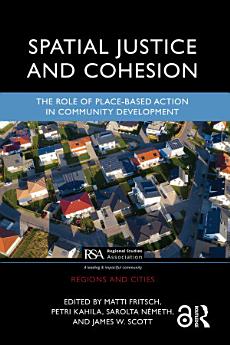Spatial Justice and Cohesion: The Role of Place-Based Action in Community Development
About this ebook
Given the political, social and economic salience of locale, this book explores the potential contribution of place-based initiative to more balanced and equitable socio-economic development, as well as growth in a more general sense. The overall architecture of the book and the individual chapters address place-based perspectives from a number of vantage points, including the potential of achieving greater effectiveness in EU and national level development policies, through a greater local level and citizens' role and concrete actions for achieving this; enhancing decision-making autonomy by pooling local capacities for action; linking relative local autonomy to development outcomes and viewing spatial justice as a concept and policy goal. The book highlights, through the use of case studies, how practicable and actionable knowledge can be gained from local development experiences.
This book targets researchers, practitioners and students who seek to learn more about place-based based development and its potentials. Its cross-cutting focus on spatial justice and place will ensure that the book is of wider international interest.
The Open Access version of this book, available at www.taylorfrancis.com, has been made available under a Creative Commons Attribution-Non Commercial-No Derivatives (CC-BY-NC-ND) 4.0 license. Funded by The University of Eastern Finland.
About the author
Matti Fritsch is a Senior Researcher in the Faculty of Social Sciences and Business Studies at the Karelian Institute of the University of Eastern Finland.
Petri Kahila is an Adjunct Professor of Economic Geography and the Director of the Karelian Institute of the University of Eastern Finland.
Sarolta Németh is Project Researcher at the Karelian Institute of the University of Eastern Finland.
James W. Scott is a Researcher in Regional and Border Studies at the Karelian Institute of the University of Eastern Finland.






